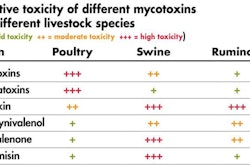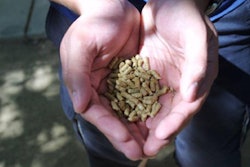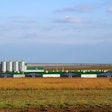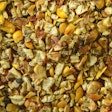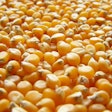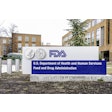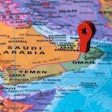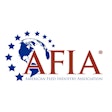The Global Feed LCA Institute (GFLI), which brings together a consortium of international companies and associations representing the major feed-producing regions dedicated to measure and benchmark environmental impacts, including greenhouse gas (GHG) emissions, was officially launched in Washington.
Led by its founding members including the International Feed Industry Federation (IFIF), the American Feed Industry Association (AFIA), the Animal Nutrition Association of Canada (ANAC) and the European Feed Manufacturers’ Federation (FEFAC), the GFLI is an independent body, which aims to develop a groundbreaking feed-specific life cycle analysis (LCA) database and tool, an important step in supporting the reduction of environmental impacts in the livestock production chain.
Mike Goble, Chair of the GFLI Management Board, explained that “following the official publication of the FAO-led Livestock Environmental Assessment and Performance (LEAP) Global Feed LCA Guidelines methodology in April 2015, the mission of the GFLI is to implement the internationally recognized LEAP methodology by developing a high-quality, globally recognized and harmonized public database for feed ingredients to support meaningful LCAs of livestock products.”
Mr. Goble added “GFLI partners are committed to develop and build a feed-specific publicly available LCA tool to facilitate environmental assessments and the measurement of continuous improvement, which is both comparable and measurable across world regions. The database and the tool would be public and freely accessible. The GFLI has established a formal partnership with the FAO and LEAP to ensure that the deliverables of the GFLI are compliant with the FAO/LEAP methodological requirements.”
Alexandra de Athayde, IFIF Executive Director, said “already through innovation and efficiency, animal feed has proven to be an essential part of the solution to make the livestock production chain more sustainable and reduce environmental impacts. The GFLI will allow for a globally harmonized, region-specific and precompetitive benchmarking to support the further reduction of impacts, including GHG emissions, in the livestock chain.”
Ms. de Athayde added “given the diversity of livestock production systems around the world, it is important to find solutions that work locally, while ensuring food safety and quality from farm to fork. IFIF will continue to champion science-based decisions, the need for continued innovation and better technologies, as well as regulatory convergence and free and fair trade as a basis for sustainable production in the future.”
Visit www.ifif.org for more information about the GFLI and IFIF’s GHG-related initiatives.



